Table of Contents
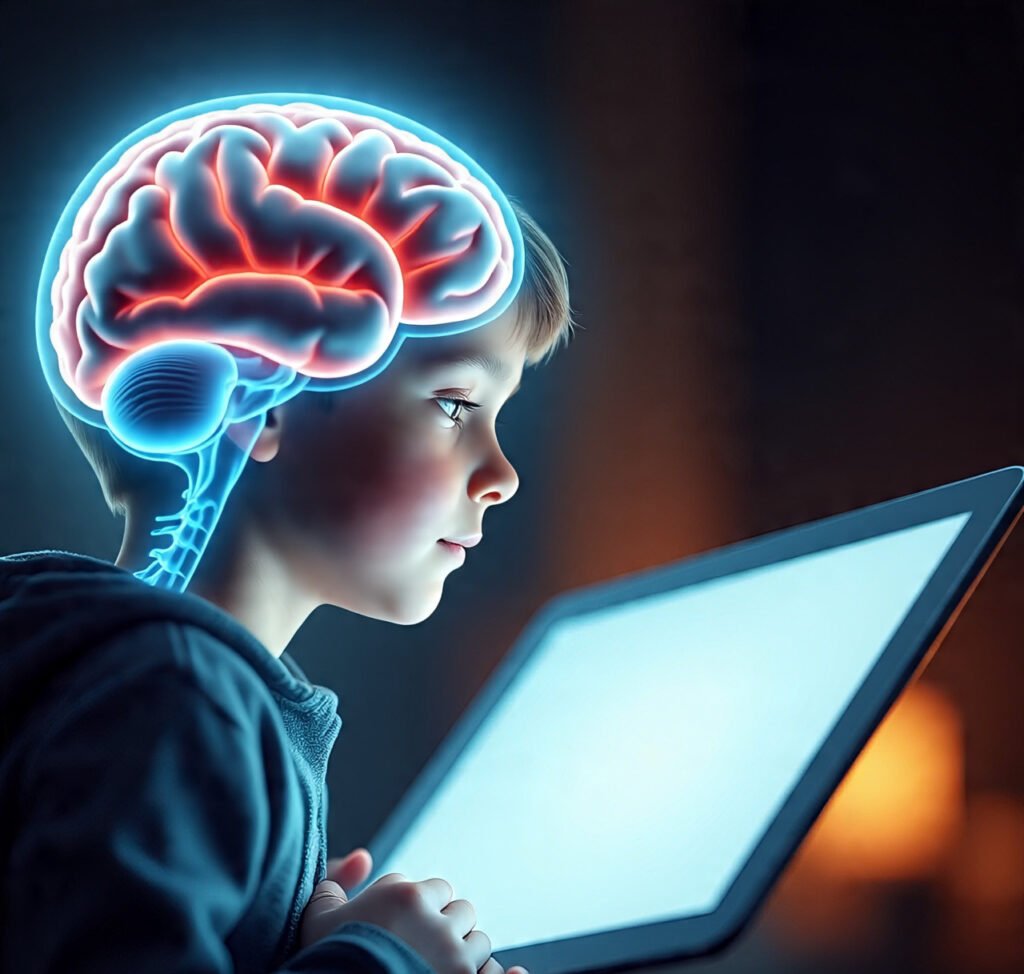
Screen time brain development is more than just a parenting buzzphrase today it’s the stealthy battlefield where your child’s future focus, creativity, and emotional control are being shaped.
Let me welcome you into a situation most parents secretly recognize.
Scene 1: The Living Room Warzone
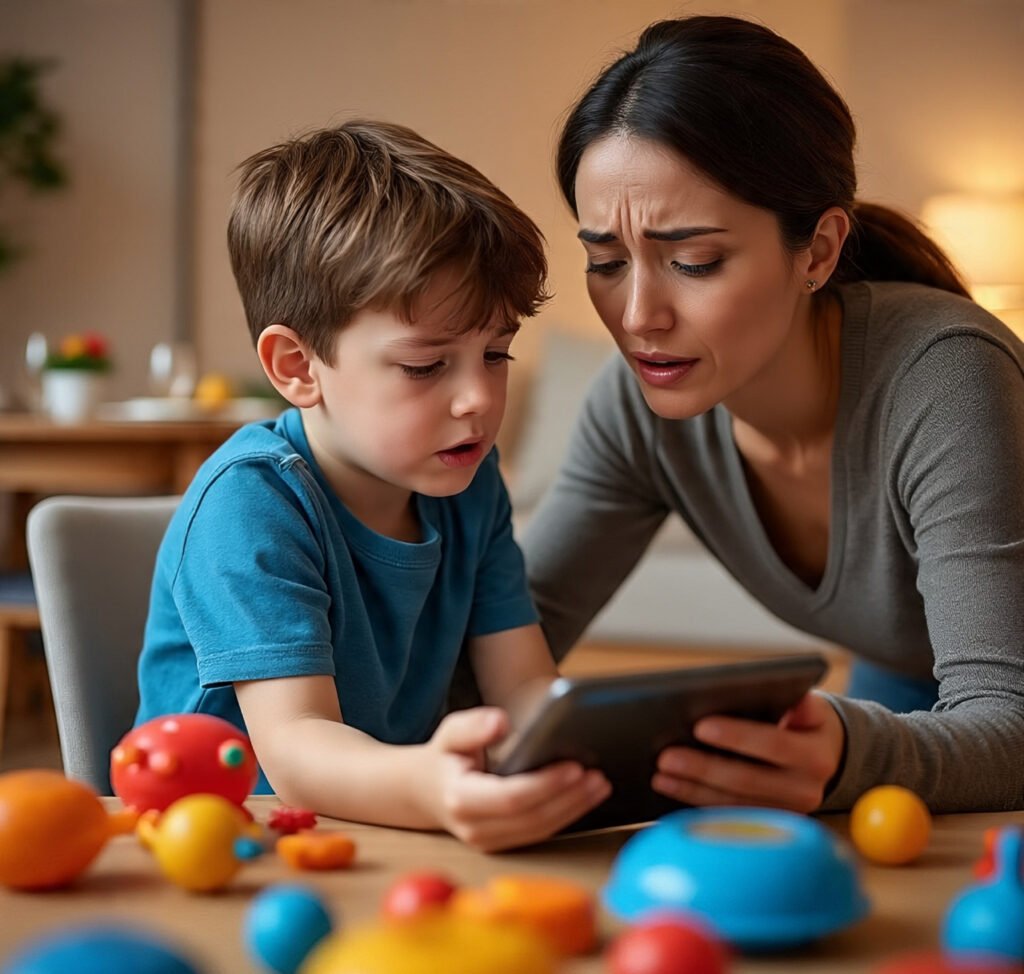
It’s 7:30 PM. Dinner’s on the table. But 6-year-old Aarav won’t budge — his gaze is glued to a high-speed cartoon on the tablet. His mom, Riya, talks three times before he even registers her voice.
She gently takes the device away. Aarav throws a tantrum red face, watery eyes, flailing arms.
The screen’s gone, but the storm has only just begun.
The Modern Battle: Screens Are Everywhere
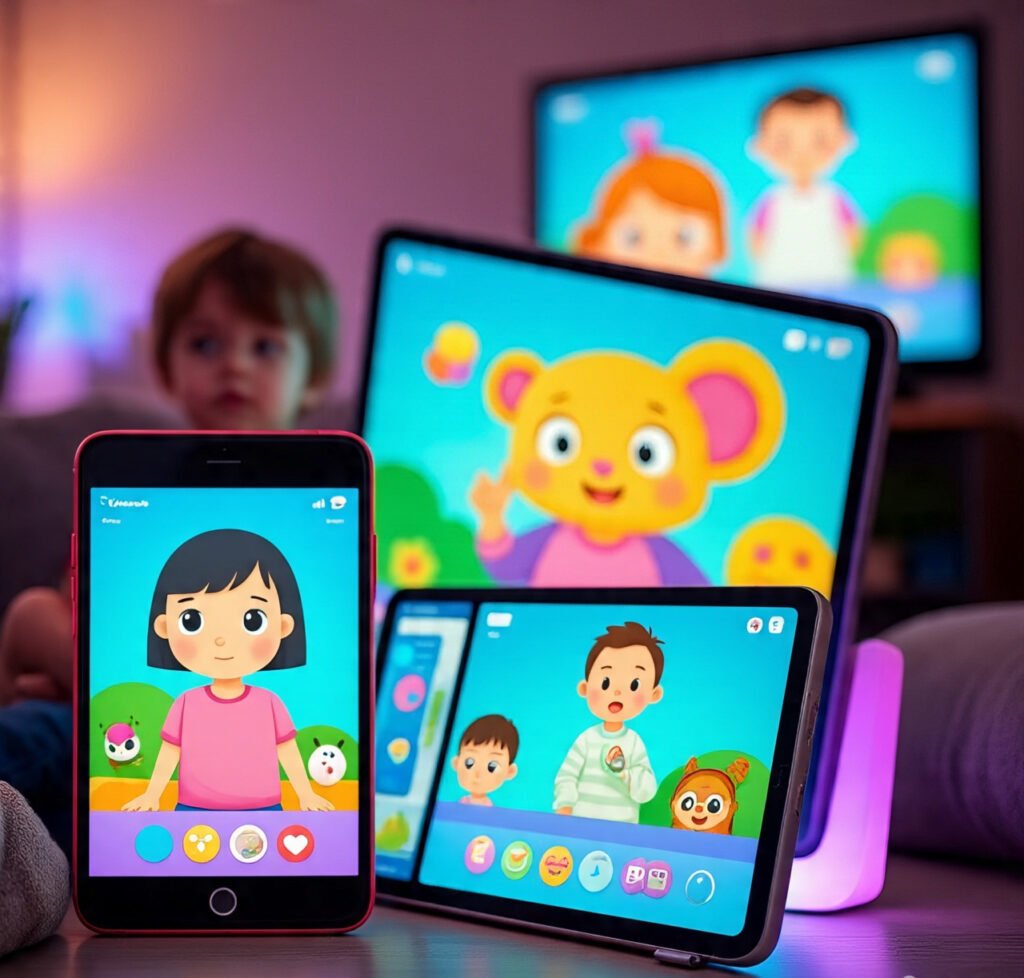
From TVs to phones to educational apps to YouTube — screens are being turned into digital babysitters. And though we hope they’re instructing our children in at least a thing or two, the science paints a mixed picture.
Too much passive screen time — like watching videos or scrolling endlessly — overloads the brain, especially in children under the age of 14. What scientists have found is that this type of interaction slows down language acquisition, decreases attention span, and even hurts emotional regulation.
What Science Says: The Brain Under the Screen
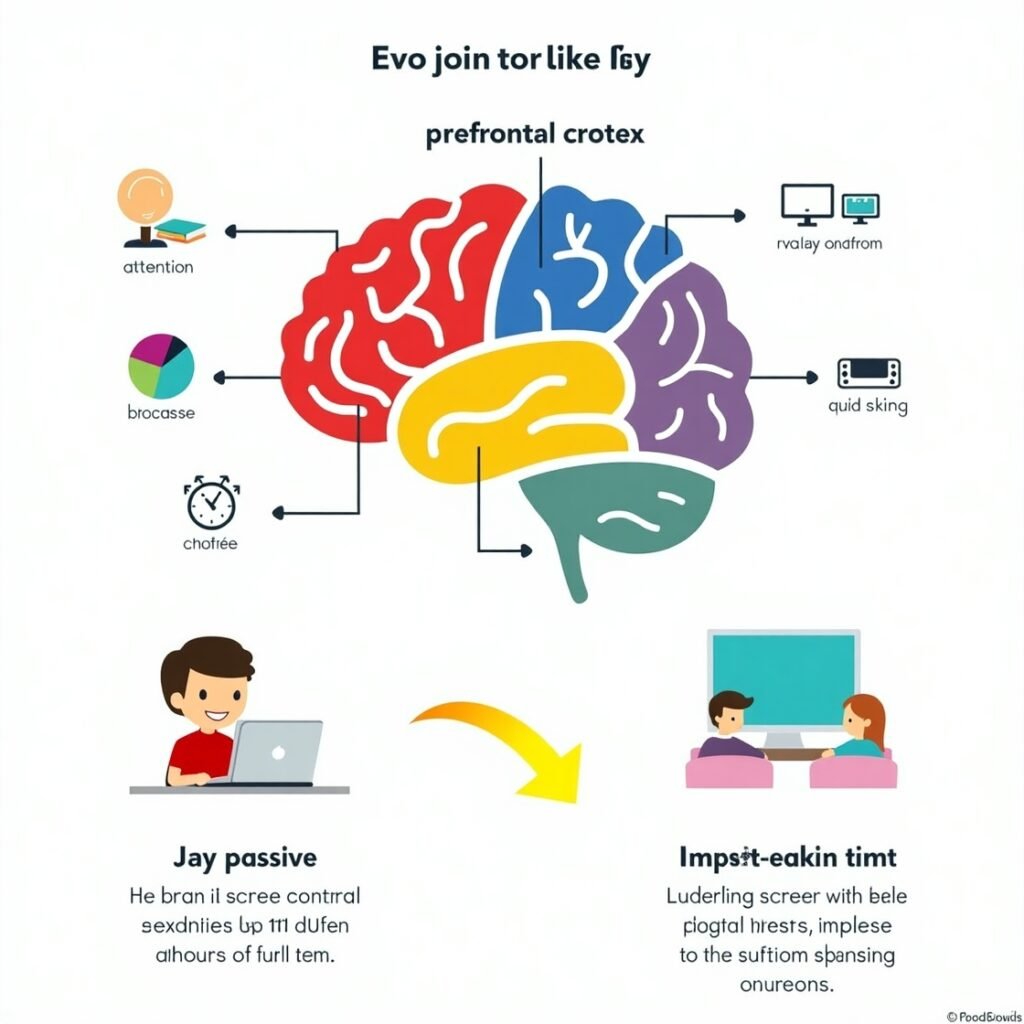
The prefrontal cortex, which controls attention, planning, and regulating impulses, continues to develop in children. When hit with rapid-fire images, addictive cycles, or reward-saturated content, the brain begins craving immediate satisfaction.
- Passive screen time stimulates reward centers of the brain but doesn’t stimulate it.
- Active screen time, however, stimulates problem-solving, decision-making, and focus.
The content quality is as important as the duration.
Aarav Again — 3 Weeks On
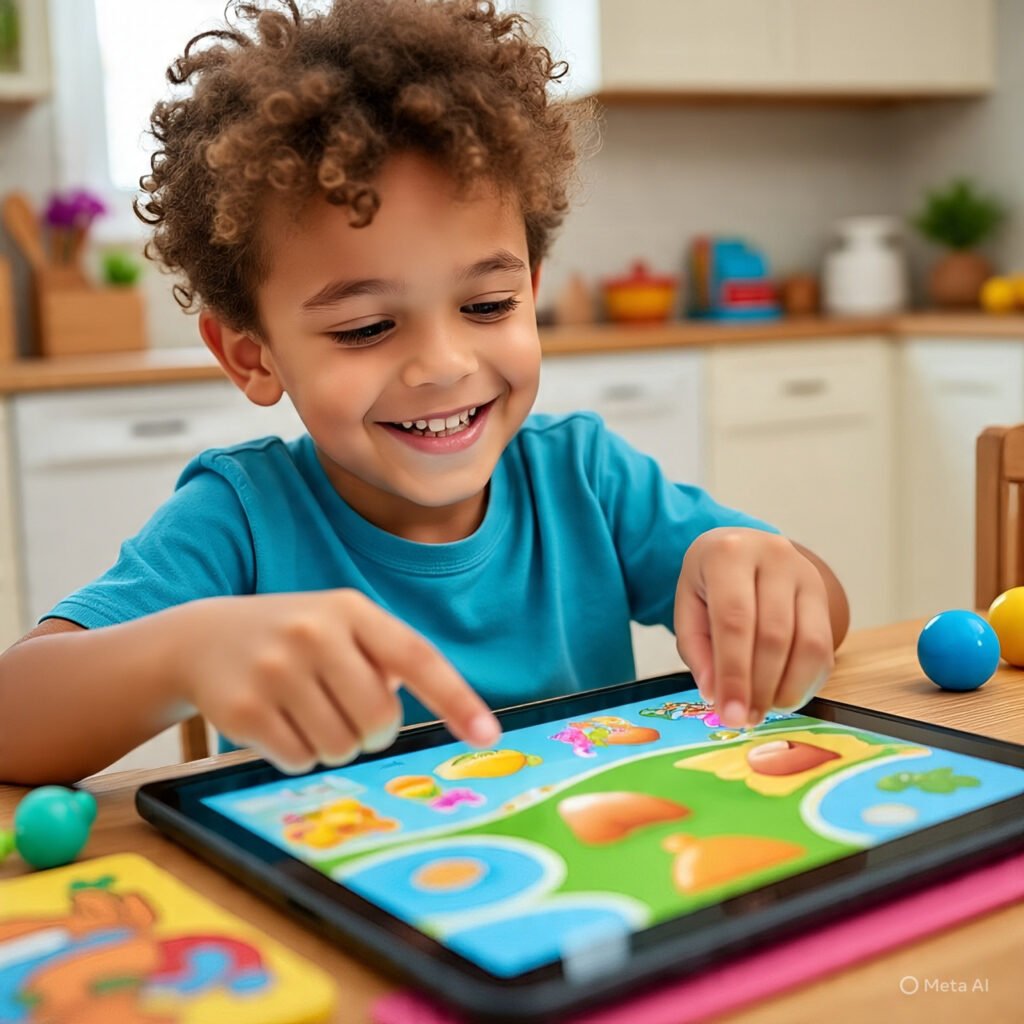
It is 7:30 PM this time. Instead of a tantrum, however, Aarav is happily playing a “prefrontal cortex” game on Focus Fun — where he needs to identify objects, read clues, and earn stars. He chuckles as he gets a clue incorrect and tries again.
Riya watches in amazement. He is no longer frustrated. He’s thinking, not just looking. And the best part they talk about the game after, not fight over it.
The Focus Fun Formula: Balance, Not Ban
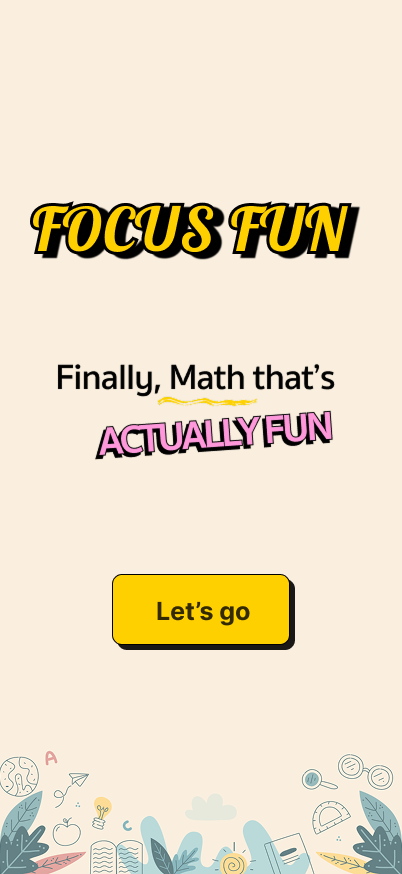
Focus Fun was built with kids’ brain development in mind. Every game is crafted to facilitate learning, not just have fun. This is how:
✅ Interactive > Passive
Kids don’t just watch — they play, listen, solve, think, and respond. This active engagement supports stronger memory, sharper logic, and improved focus all key to healthy screen time brain development.
✅ Age-Smart Content:
Games are aligned with phases of mental development. A 4-year-old is given voice hints and patterns, while a 10-year-old can solve math riddles or sentence grammar.
✅ Time-Guided Sessions:
Timers can be employed. Focus Fun urges children to take breaks, as would a patient educator.
✅ Parent Dashboard:
Look at what your child played with, for how long, and what they built without spying or snooping.
From Meltdown to Mindful Play: Supporting Screen Time Brain Development
The goal is not to snatch screens away — it’s to reimagine the way children use them. Because technology isn’t going anywhere. But how we let it construct children’s minds is our choice.
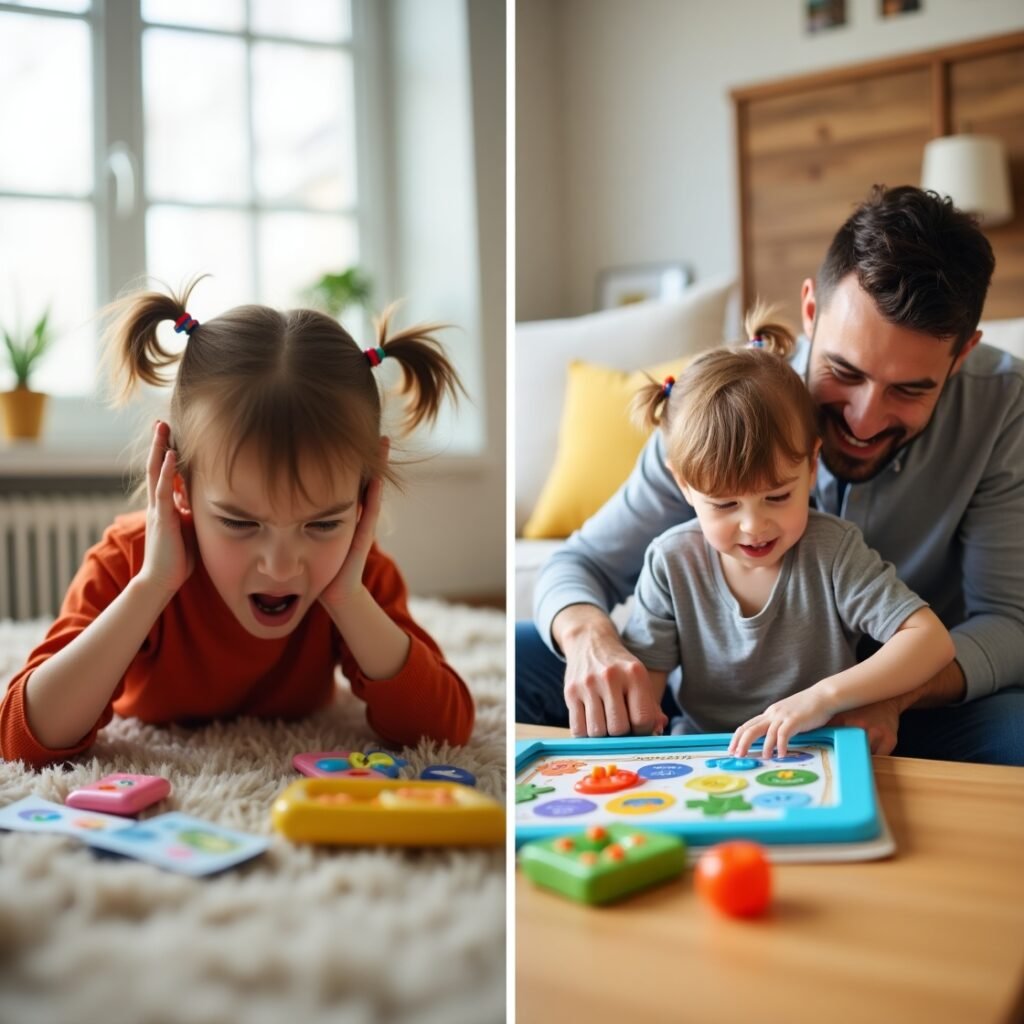
You don’t have to choose between digital detox and digital excess.
With Focus Fun, you can reach the sweet spot: smart screen time that feeds your child’s brain.
Why It Matters Now
Experts in child development say:
- Children under age 8 are on screens for 4+ hours per day.
- 80% of that is passive screen time — videos, reels, animations.
- 15 minutes of high-quality interactive screen time per day can build long-term brain benefits.
It’s not the screen. It’s what’s on it and how it’s used.
Focus Fun in Real Families: What Parents Say
“My daughter was hooked on cartoons — now she looks forward to ‘Math Quiz Time’ on Focus Fun. She doesn’t even realize she’s learning!”
— Seema, Mumbai
“We used to fight over screen time daily. But with Focus Fun, we plan and adhere to it. No fights, just fun.”
— Rahul, Pune
“It’s the first app I’ve seen where my son talks more after screen time than before. That’s a win!”
— Meena, Bangalore
Ready to Rethink Screen Time?
Focus Fun is more than an app — it’s a parenting ally in the digital age.
✅ Science-backed
✅ Screen-smart
✅ Brain-boosting
✅ Stress-reducing
Let screens help, not hurt.
Choose Focus Fun — where screen time becomes brain time.
Want a free trial or expert-curated game recommendations by age?
Join the Focus Fun Family Today
FAQs
1. How does mobile addiction affect the brain?
→ It disrupts attention spans, overstimulates the reward system, and lowers cognitive flexibility. Mobile overuse negatively impacts screen time brain development, but Focus Fun counters this with activities that boost thinking and self-control.
2. What are the side effects of mobile phones on children?
→ Poor sleep, reduced focus, and emotional instability are common. These effects are directly linked to poor screen time brain development. Focus Fun helps shift screen time from passive to purposeful, promoting healthy habits.
3. What are the symptoms of mobile addiction in children?
→ Irritability, anxiety when offline, and mental fatigue are signs of disrupted screen time brain development. These symptoms improve when screen use includes brain-based play, like what Focus Fun offers.
4. Can screen addiction be cured?
→ Yes—with structured routines and healthier digital alternatives that support screen time brain development. Focus Fun plays a key role in reversing the damage through mindful, interactive content.
5. Is mobile addiction a serious problem?
→ Absolutely. It affects emotional, academic, and neurological growth by harming screen time brain development. But tools like Focus Fun are a smart step toward screen-time recovery.
